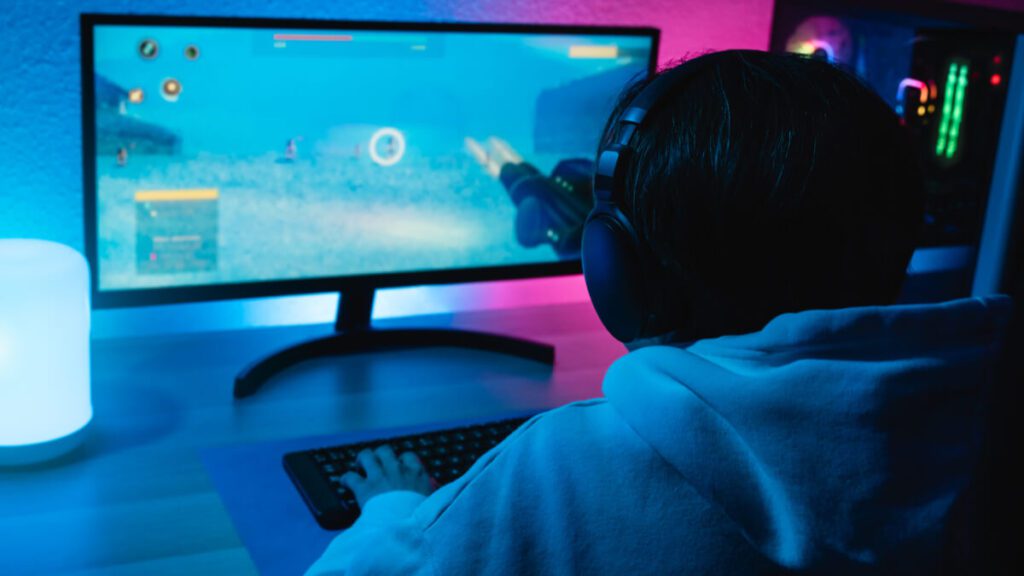
Tencent, the Chinese tech-company labeled as the biggest around the globe, has officially launched facial recognition technology that will be utilized to scan many Chinese kids’ faces every single night. The system will operate for the purpose of catching minors breaking the gaming curfew set by the Chinese government.
This may seem like one intense episode of Black Mirror, but it’s not.
China boasts the world’s most lucrative gaming market according to GMA, with revenues amounting to $32 billion as of 2020 led solely by mobile games. However, are the rules on what is acceptable for gamers in the country growing increasingly harsh?
For decades, China has been implementing rules and regulations on its entertainment industry. In 2019, Chinese authorities agreed on a law that banned kids from enjoying video games between 10PM and 8AM or from exceeding 90 minutes per game.
During the month of June, every game in China was forced to add a new authentication system that checks a player’s Chinese national identity, as well as their age, to stop underage players from breaking the rules.
However, several minors managed to find loopholes within these rules and regulations. According to The Verge, Chinese kids were using their parents, or even their grandparent’s accounts to garner unlimited playtime.
Fast forward to 2021, and the rules are becoming alarmingly intrusive.
As of July 5th, every single Chinese video game is required to utilize the facial recognition technology to ensure that each “adult” playing the video games is not a minor hiding behind his or her guardian’s account.
The facial recognition system will be placed only in China’s mobile games, according to Tencent. PC games like League of Legends are not included, but games such as Honor of Kings and Game for Peace (China’s national take on PUBG) will be affected.
From stealing money to add it in the gaming account to spending hours in internet cafes, authorities decided to install this new system after multiple gaming incidents have raised concerns over the physical and mental wellbeing of gamers in China.
Daniel Ahmad, Senior Analyst at Niko Partners, a firm that works with Tencent, told The Verge that the facial recognition system will essentially operate by detecting if the gamer is playing long past midnight, or is spending a certain amount of money.
Then, the system will tick a box in Tencent, in which the company will “prompt the user to verify their identity through facial recognition, either through that database or through a database they’ve already used.”
According to Ahmad, Tencent operates with the help of China’s national citizen database of face photos. Hence, the new facial recognition system will not store any of the new scans. Instead, it will add on to China’s already built surveillance system.
However, there is a trick to the equation.
To make it seem like China is not forcing the rules down kids’ throats, Tencent has made it clear that when a gamer is prompted for a facial scan, he or she can easily refuse, at which point the system will consider them as a minor and kick them out of the game.
Chinese authorities have repeatedly explained that these strict rules are for the purpose of eliminating video game addiction. Even though the intrusiveness of China’s rules are unnerving, Chinese parents seem keen to the idea.
“If you look online and read the comments, a lot of elderly parents say this is great, because gaming is terrible,” Ahmad told The Verge. “It’s always the older generations that say games are ruining it for our kids, so there’s a bit of acceptance among the older generation in that this is how it should be.”
In retrospect, China will undoubtedly combat video game addiction through implementing multiple regulations. However, the larger impact of all this is unforeseeable. The reality of the present moment is that an entire generation is learning more about the entire world through the help of video games, except Chinese kids who will only learn what the authorities want them to take in.
Inside Telecom provides you with an extensive list of content covering all aspects of the tech industry. Keep an eye on our Community section to stay informed and up-to-date with our daily articles.